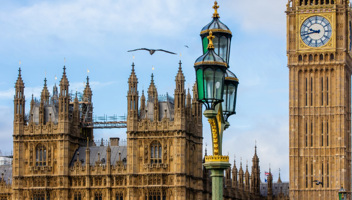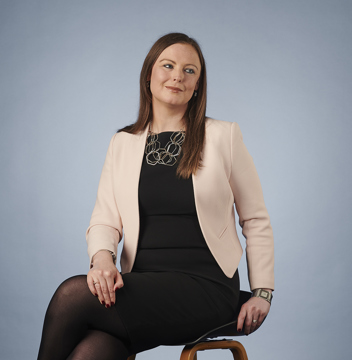This year saw the tenth anniversary of our very own Burness Paull Foundation. Over the last decade, our charity trustees have overseen the provision of support to more than 300 charities across Scotland and the distribution of over £500,000 to causes close to the hearts of our employees.
As Trustees’ Week 2025 draws to a close, our charities team, together with some of the current trustees of the Burness Paull Foundation, have been reflecting on this year’s central theme of good governance. Charity trustees are critical to good governance, ensuring appropriate systems and procedures are in place, exercising good decision-making and judgement, and being cognisant of risks and opportunities – the list is seemingly endless.
Achieving and maintaining good governance can feel daunting both to very experienced board members and to those individuals contemplating their first role as a charity trustee.
With that in mind, we thought we would share with you some of our top tips for charity trustees based on our experiences as advisors to the sector, as well as some views from our very own Burness Paull Foundation trustees on their personal experiences:
- Understand what’s expected of you – a charity trustee is required “to act with the care and diligence that it is reasonable to expect of a person who is managing the affairs of another person”. Anyone who’s ever looked after someone else’s child will understand that heightened sense of responsibility you feel. You’re probably more careful with them than you are with your own children! Understanding this duty is a crucial part of getting to grips with the role of a charity trustee.
- Ask the ‘silly’ question – ever heard the saying that there is no such thing as a silly question? In the context of being a charity trustee, you’re a key part of the checks and balances that exist to make sure that charities use their resources well, so it is incumbent on you to ask those questions. Be familiar with what your charitable purposes are and ask questions to make sure that you’re going in the right direction.
- Show up! – It might seem obvious but when people are busy and have a to-do list with a hundred different things on it, a voluntary role can often be the thing that slips. Good governance begins with board members taking time to prepare, attend, and engage, so that effective decision-making is part of the fabric of the way the charity operates.
- Know when to ask for help – in an ideal world, your charity board will be made up of individuals with a varied skill set that will cover the key areas that you will require to consider as a board, but it is also really important to recognise where there may be gaps in particular skills or where a particular issue requires specialist input. It is important that charity trustees recognise when professional advisors are required and act upon relevant advice.
- Look to the future – while the temptation may be to focus on what is in front of you in any given day or week, charity trustees as the ‘guardians’ of a charity must always have an eye on the ‘what’s next?’. Recent years have shown that we are living in changing and challenging times and the sector has seen countless examples of organisations being left behind owing to these operational challenges. Charity trustees should monitor upcoming changes that could impact upon their charity, whether in legislative terms or more broadly in the economic or political space.
“Serving as chair and trustee of the Burness Paull Foundation is incredibly rewarding. It’s a privilege to help channel our colleagues’ passion into meaningful support for a wide range of charities, and to witness the lasting difference we can make – including helping Street Soccer go from strength to strength." - Caroline Stevenson, Burness Paull Foundation
“Being a trustee of the Burness Paull Foundation has been a great opportunity to play a part in the development and continuation of the foundation’s goals. Our trustee meetings are an open space for questions and discussions on actions, which make it easy to have meaningful conversations on progress. We are lucky to be well supported by our charities specialists to keep us on the right track on the governance angle.” - Louise McErlean, Burness Paull Foundation
At Burness Paull, all of the members of our charities team are extremely well versed on trustee duties and what they mean in practice, both for the individual and for the charity as a whole. We are always delighted to talk through any queries that charities may have in this space, so please do get in touch.
Written by

Emma Manson
Senior Solicitor
Third Sector & Charity
Related News, Insights & Events
Error.
No results.

A closer look at MacLennan v British Psychological Society – Redefining whistleblowing rights for charity trustees
11/12/2024
In the recent Employment Appeal Tribunal case, MacLennan v British Psychological Society, important legal questions emerged about the rights of charity trustees in bringing whistleblowing claims.

Mitigating the risk of charity fraud: Some top tips
04/12/2024
As part of this year’s Charity Fraud Awareness Week, we partnered with the Fraud Advisory Panel and Evelyn Partners to host an event on what charities can do to protect themselves from fraud.

Autumn 2024 Budget: Has Rachel Reeves helped, or hindered, charities?
08/11/2024
What impact will the recent budget have on charities in Scotland and across the UK?
{name}
{properties.pageSummary}
{properties.headline}
{properties.pageDate|date:dd/MM/yyyy}
{properties.shortDescription}






